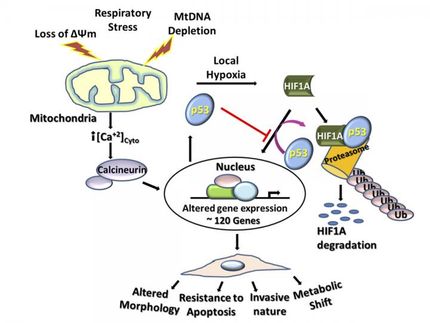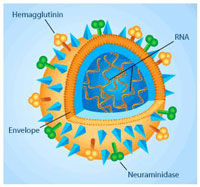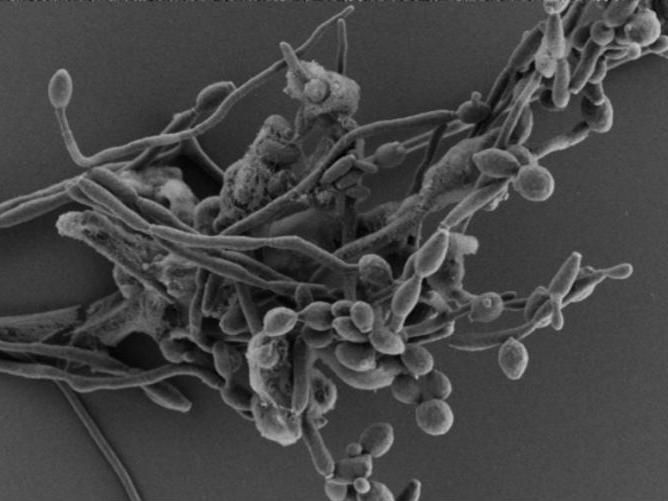Phase III Novartis data show potential benefit of Afinitor plus Sandostatin LAR in patients with advanced neuroendocrine tumors
A Novartis Phase III study of Afinitor® (everolimus) tablets in combination with Sandostatin® LAR® (octreotide acetate for injectable suspension) extended median progression-free survival (PFS), or time without tumor growth, in patients with advanced euroendocrine tumors (NET) compared to taking octreotide LAR alone. The study, RADIANT-2 (RAD001 In Advanced Neuroendocrine Tumors), was presented at the 35th European Society for Medical oncology (ESMO) Congress and is part of the largest clinical trial program in patients with advanced NET.
Everolimus is not approved in this patient population. Octreotide LAR is indicated for the treatment of symptoms associated with functional gastroenteropancreatic-NET (GEP-NET).
The study did not meet its primary endpoint of PFS based on central radiologic review of the data (p=0.026 versus p=0.024 predefined). Findings demonstrated that everolimus plus octreotide LAR provided a clinically meaningful extension in the median time without tumor growth from 11.3 to 16.4 months when compared with placebo plus octreotide LAR (hazard ratio=0.77 [95% confidence interval, 0.59 to 1.00]; p=0.026).
Further analyses of the study data were conducted using a well-established statistical model to adjust for imbalances in baseline characteristics between the two treatment arms and inconsistencies between the review of radiology scans for disease progression. The results show that everolimus plus octreotide LAR provided a statistically significant reduction in the risk of disease progression by 40% (hazard ratio=0.60 [95% confidence interval, 0.44 to 0.84]; p=0.0014) versus octreotide LAR alone.
Patients examined in the study had advanced NET that originated in the gastrointestinal (GI) tract, lungs and other locations in the body, also known as carcinoid tumors, which are the most common form of NET. Neuroendocrine tumors are a rare cancer that can cause symptoms such as flushing and diarrhea. Most patients with NET are not diagnosed until their disease has advanced, meaning the cancer has spread to other parts of the body and has become more difficult to treat. Patients with advanced NET usually have a five year survival rate of less than 35%.
"A key goal of treating patients with advanced NET is to extend time without tumor growth," said Prof Marianne Pavel, MD, Leader, Section for Neuroendocrine Tumors and Clinical Trial Unit in Neuroendocrine Tumors, Charité University Medicine, Berlin, and primary investigator of the RADIANT-2 trial. "This Phase III study is important because it shows that everolimus plus octreotide LAR may provide a viable new treatment approach for patients with advanced NET, where there is a high unmet need."
Results from the Phase III RADIANT-3 trial, which were also presented at the ESMO Congress, show that everolimus more than doubled median time without tumor growth from 4.6 to 11.0 months when compared with placebo in patients with advanced pancreatic NET (hazard ratio=0.35 [95% confidence interval, 0.27 to 0.45]; p<0.0001). Findings from this study were also presented earlier this year at the 12th World Congress on Gastrointestinal Cancer in Barcelona.
"Results from the RADIANT trials, the largest and broadest in patients with advanced NET, will form the basis for regulatory filings later this year and demonstrate the ongoing commitment Novartis has to the NET community," said Hervé Hoppenot, President, Novartis Oncology.
Topics
Organizations
Other news from the department research and development

Get the life science industry in your inbox
By submitting this form you agree that LUMITOS AG will send you the newsletter(s) selected above by email. Your data will not be passed on to third parties. Your data will be stored and processed in accordance with our data protection regulations. LUMITOS may contact you by email for the purpose of advertising or market and opinion surveys. You can revoke your consent at any time without giving reasons to LUMITOS AG, Ernst-Augustin-Str. 2, 12489 Berlin, Germany or by e-mail at revoke@lumitos.com with effect for the future. In addition, each email contains a link to unsubscribe from the corresponding newsletter.























































